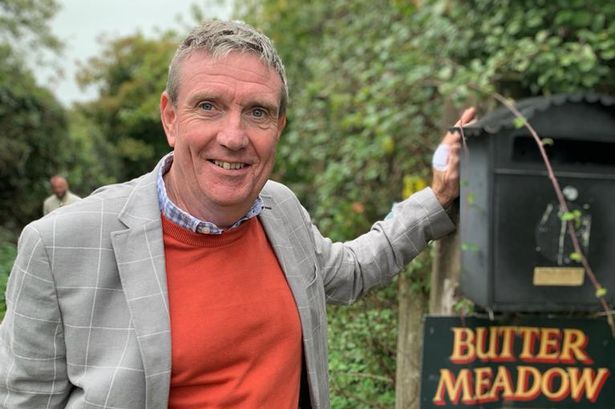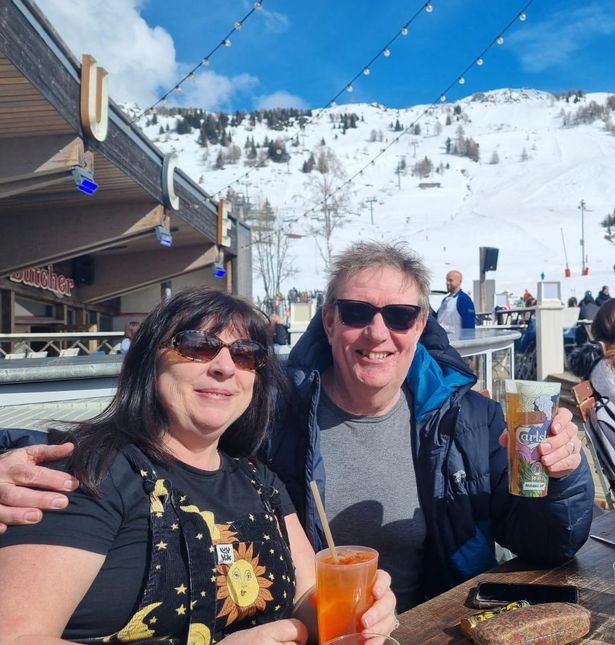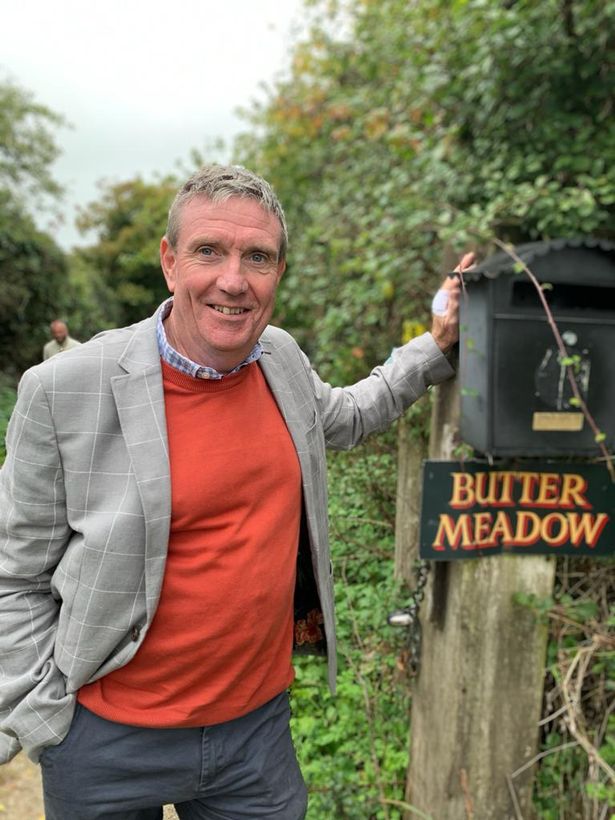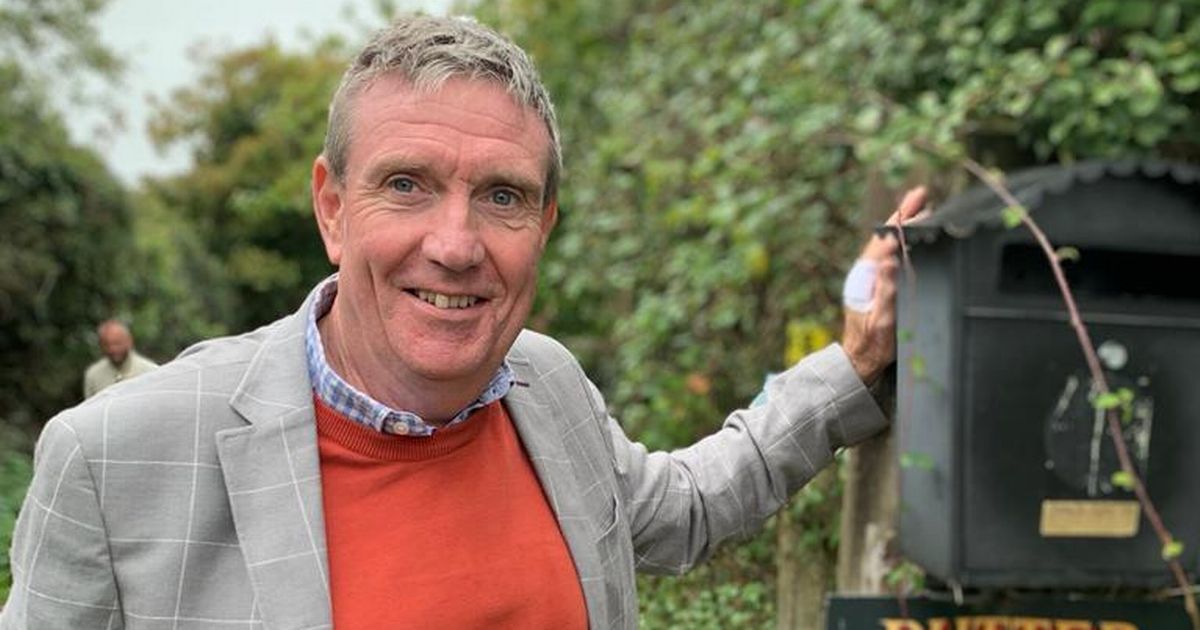Patrick Howard was told his symptoms could be a common yeast infection
08:14, 18 Sep 2025Updated 09:22, 18 Sep 2025
 Patrick Howard was given a “bleak” diagnosis (Image: Collect/PA Real Life)
Patrick Howard was given a “bleak” diagnosis (Image: Collect/PA Real Life)
A dad was given a 7% chance of survival after initially being told he could have thrush. Patrick Howard, 65, who is retired and lives with his 59-year-old wife Laura in Liverpool was first diagnosed with prostate cancer in October 2018 and underwent a procedure to remove his prostate.
When he noticed itching and redness on his penis in April 2020, a specialist later confirmed it was an “aggressive” form of penile cancer, caused by human papillomavirus (HPV), and his diagnosis is terminal. Patrick jokingly said to Laura “surely they’re not going to chop it off?”, but his consultant said a penectomy was the best course of treatment, and he had two-thirds – approximately four inches – of his penis surgically removed.
When lumps continued to appear after this, he underwent radiotherapy, followed by two types of chemotherapy, the second of which was “brutal” – but he has defied doctors’ expectations, outliving his initial 12-month prognosis.
Now, ahead of International Penile Cancer Awareness Day on September 20, Patrick is approaching nearly two years since his last treatment and cannot believe his progress.
He said: “I had something like a 7% chance of survival, and I remember thinking, ‘someone’s got to get the winning ticket’. Now doctors have said I am no longer in the less than 12 months to live category.
“I’m perilously close to two years without treatment now, which is extraordinary, and I now have scans every six months. You either go for it, or you succumb to it.”
 Patrick and Laura went skiing in The Alps.(Image: Family handout/PA Real Life)
Patrick and Laura went skiing in The Alps.(Image: Family handout/PA Real Life)
Penile cancer is very rare and mostly affects men aged over 50 – and roughly half of all penile cancers are caused by certain types of HPV, the NHS says. For Patrick, he said he was first diagnosed with prostate cancer “by accident” in October 2018 after undergoing routine check-ups and blood tests.
He underwent a radical prostatectomy – the removal of the entire prostate gland – to treat the disease and then “put that behind (him)”. In April 2020, Patrick noticed his penis was itchy, red and sore, and during a phone consultation a nurse suggested it could be thrush – a common yeast infection which affects men and women.
He was prescribed with some topical creams but when none alleviated his symptoms he visited his GP again in September 2020.
Patrick said: “It was a beautiful day and I breezed in there, feeling lucky to actually see a GP in person (during the Covid-19 pandemic). And my GP said, ‘I hate to say it, but I think you’ve got penile cancer’.”
Patrick said he “didn’t even know penile cancer existed” and he saw a specialist on October 9 2020 – his 61st birthday – at Clatterbridge Hospital.
He said the specialist told him he had “an extremely rare and aggressive form of penile cancer” and, without treatment, the prognosis was “bleak”, giving him just 12 months to live.
Patrick added: “We were shocked, deeply shocked, and he said I needed to have an operation. I said to Laura, my now-wife, ‘I don’t know what operation they’re going to do, but surely they’re not going to chop it off?’
“And she said, ‘Well, I hate to say this, but I think that’s exactly what they’re going to do’.”
 Patrick and Laura have been on many ‘adventures’.(Image: Family handout/PA Real Life)
Patrick and Laura have been on many ‘adventures’.(Image: Family handout/PA Real Life)
Feeling “bewildered” about the prospect of a penectomy, Patrick was referred to The Christie NHS Foundation Trust in Manchester, the largest single site cancer centre in Europe, where he underwent further tests and scans.
At this point, he said he was told he had renal cancer as well, as doctors had discovered a tumour on his kidney. He then had the procedure to surgically remove two-thirds – approximately four inches – of his penis, followed by surgery to remove some lymph nodes around his groin and pelvic area, and then radiotherapy.
Patrick and Laura got married on November 5 2021 and the couple decided to venture on some holidays and arrange trips to see friends and family. However, with lumps continuing to appear, it was decided that Patrick would need to undergo two more types of chemotherapy.
He said the first was “savage” and the second was “radical” yet “brutal and more punishing”. However, since his TIP chemotherapy finished in October 2023, Patrick has had no further treatment and his consultant said he is “exceeding expectations”, with no further progression of the disease.
Patrick and Laura, who have six children between them, have since had many “amazing adventures”, completing a road trip around Italy, skiing in The Alps and visiting Corfu, Cornwall and Dorset.
When they got married, Patrick was going through treatment and said he did not think he would make it to the first anniversary, let alone their fourth coming up this November.
Patrick said: “We cram stuff in, we enjoy ourselves and we just do loads of lovely things. The important decisions are the ones about the time you spend together with friends, with family, and making the most of it.
“While I do have some lasting and lingering side effects, like brain fog and lymphoedema, and I get tired more easily, it doesn’t diminish our joy and appetite for doing the best we can with every single day.”
 Patrick Howard was given a “bleak” diagnosis (Image: Collect/PA Real Life)
Patrick Howard was given a “bleak” diagnosis (Image: Collect/PA Real Life)
Although he is uncertain whether he will need further treatment in future, Patrick wants to raise more awareness of penile cancer and HPV and encourage men to speak out.
With his terminal diagnosis in 2020, Patrick said he never imagined reaching this point, where he can talk about making plans for “four or five years’ time”.
Speaking about his advice to others, he said: “All men should go and get checked and keep their partner in the loop from the beginning. I wouldn’t have been able to get through this without Laura. Definitely talk to your nearest and dearest and don’t be embarrassed.
“Rather than being overwhelmingly consumed by the potential doom and gloom component, there is always something you can cling on to, some level of hope. It’s always good to have something positive to look forward to.”
Laura added: “To get nearly two years without treatment, that’s been incredible. We’re still living life as if Patrick’s got less than 12 months to live, but when someone you love has that diagnosis, it changes how you see everything and you want to do the most you can.”
For more information and support, visit Orchid’s website at orchid-cancer.org.uk, Global Action on Men’s Health’s website at gamh.org and NOMAN is an Island’s website at nomancampaign.org.
